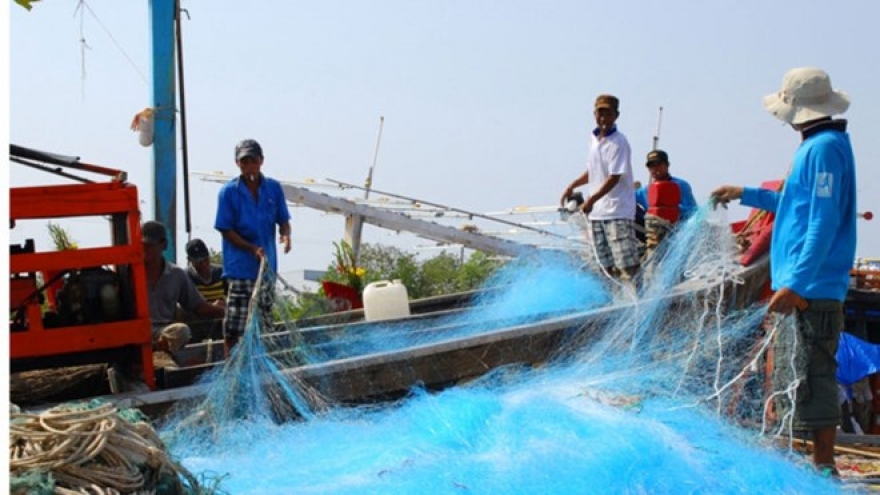Personnel training – key to marine economy sustainably
Human resources development has been seen as the key to developing the marine economy sustainably as well as managing, using and protecting maritime resources in Vietnam, as these sectors require a large and skilled labour force.
 |
| Fishermen in Phu Yen province |
Additionally, managers lack professional skills and the number and quality of researchers has remained limited. Therefore, marine scientific and technological outcomes have failed to meet expectations.
Given this, over the past ten years, Vietnam has paid attention to human resources development in maritime affairs.
Deputy Minister of Natural Resources and Environment Tran Quy Kien said ministries and localities have focused personnel training on oil and gas, navigation, fishery and tourism.
He stressed the need to establish maritime training and research institutes in coastal cities, along with education and health establishments and houses for officials working in coastal and island areas.
The Ministry of Education and Training has also reviewed its training programme in service of the sea-based economy, and helped educational institutions launch suitable programmes.
There are 20 sea-related majors offered by 92 educational institutions nationwide.
Joining these efforts, the Ministry of Labour, Invalids and Social Affairs (MoLISA) has added 15 occupations related to the marine economy to the key training list, including nine at the international level, eight at national and three at regional level.
The MoLISA has teamed up with the Ministry of Agriculture and Rural Development to launch two vocational training programmes and another programme that improve skills for captains and chief engineers in coastal regions.
Vocational training institutions in coastal localities have also been built and upgraded, with 90 colleges, 133 schools and 454 centres. Many of them offer majors in the marine economy.
About 30,000 people in 28 coastal localities have been trained in the fishery sector.
Personnel training in tandem with scientific research has focused on seafood, navigation and oil and gas.
To meet the demand for workers, many training institutions have widened their programmes in marine affairs.
Apart from major educational institutions like Da Nang University, Hue University, Nha Trang University and Vietnam Maritime University, others have added the marine economy and management to their curricula.
Several others such as the Vietnam National Institute of Maritime Medicine and Hai Phong University of Medicine and Pharmacy have also completed frameworks of maritime medical training programmes at both graduate and post-graduate levels.
The Vietnam Academy of Science and Technology and some universities have offered majors in maritime science-technology.
The navigation sector has partnered with universities and training institutions nationwide in personnel training, developing a workforce of 44,000 seamen.
The quantity and quality of workforce in the vessel registration sector has been improved towards standards set by the International Maritime Organisation and the International Association of Classification Societies.
Also, Vietnam has placed importance on international cooperation in maritime human resources development recently, aiming to become a strong sea-based nation.



